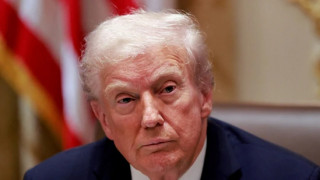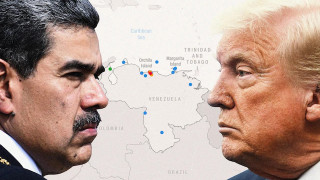
Will Israel launch full-fledged attack on Iran? (X)
New Delhi: The Middle East is once again on the brink of a significant conflict, with escalating tensions between Israel and Iran. This potential clash could have far-reaching implications for the region and the world, as both nations have a history of animosity that is deeply entrenched in geopolitical and ideological differences. The situation is rapidly evolving, with each new development adding to the already high stakes.
In response to these rising tensions, the United States has significantly bolstered its military presence in the region. This move is intended to deter aggression from both sides and reassure its allies of its unwavering commitment to maintaining stability and security in this volatile area. The US deployment includes advanced military assets such as aircraft carriers, missile defense systems, and additional troops, demonstrating a clear message of deterrence and readiness to intervene if necessary.
1. Israel-Iran Hostility: The long-standing animosities between Israel and Iran have reached a boiling point, with both nations exchanging threats and accusations on a near-daily basis. Israel has accused Iran of developing nuclear weapons and supporting terrorist groups, while Iran has accused Israel of espionage and regional destabilization efforts.
2. US Forces Deployment: In a show of strength, the US has deployed additional military assets to the Middle East. This includes the deployment of aircraft carriers, advanced missile defense systems, and a significant number of troops. This strategic move is aimed at deterring any aggressive actions and providing support to regional allies.
3. Regional Allies Mobilize: Key US allies in the region, including Saudi Arabia, the United Arab Emirates, and Bahrain, have been put on high alert. These countries have increased their military readiness, conducting drills and enhancing their defense capabilities to prepare for any potential fallout from an Israel-Iran conflict.
4.Hamas and Hezbollah: These militant groups, backed by Iran, have intensified their activities in recent months. Hamas, operating primarily in Gaza, and Hezbollah, based in Lebanon, have both escalated their rhetoric and actions, further inflaming the already tense situation. Their involvement complicates the regional dynamics and raises the stakes for all involved parties.
5. Diplomatic Efforts: Despite the rising tensions, diplomatic channels remain open. Various international actors, including the United Nations and European Union, are actively working to mediate and de-escalate the conflict. Diplomatic efforts focus on dialogue and negotiations to prevent a full-scale war.
6. Economic Implications: The potential for conflict has already impacted global oil markets. Prices have been fluctuating amid fears of supply disruptions, as the Middle East is a critical hub for oil production and export. Any significant conflict could lead to severe economic repercussions worldwide, affecting everything from energy prices to global trade.
7. Civilian Concerns: Civilians in the region are bracing for potential conflict, with many fearing the humanitarian impact of a full-scale war. There are growing concerns about the safety and security of the population, particularly in areas that may become conflict zones. The international community is preparing for potential humanitarian aid and support.
8. Historical Context: The hostility between Israel and Iran is deeply rooted in historical grievances and geopolitical rivalries. The conflict is not merely about current political disagreements but is also fueled by a long history of mistrust and competition for regional influence.
9. Global Reactions: According to an AFP count, fighting between Israel and Hezbollah since October of last year has claimed the lives of at least 542 Lebanese citizens, the majority of whom were militants but also included 114 civilians.
10. Potential Outcomes: In light of the growing tension in the area, Indian nationals living in Israel have been urged to exercise caution and abide by the safety procedures. The warning for Indian nationals living in Israel was issued the day after the Indian Embassy in Beirut issued a strong warning to them not to visit Lebanon till further notice. They were also urged to leave Lebanon.













Copyright © 2025 Top Indian News
